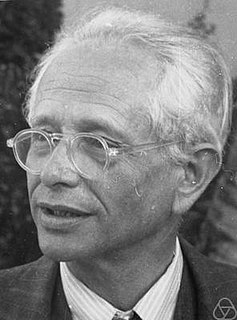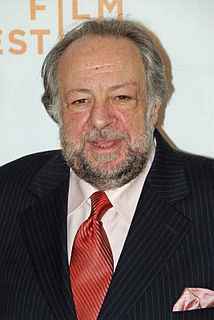A Quote by Garry Kasparov
Tarrasch's 'dogmas' are not eternal truisms, but merely instructional material presented in an accessible and witty form, those necessary rudiments from which one can begin to grasp the secrets of chess.
Related Quotes
God's Word is not presented in Scripture in the form of a theological system, but it admits of being stated in that form, and, indeed, requires to be so stated before we can properly grasp it - grasp it, that is, as a whole. Every text has its immediate context in the passage from which it comes, its broader context in the book to which it belongs, and its ultimate context in the Bible as a whole; and it needs to be rightly related to each of these contexts if its character, scope and significance is to be adequately understood.
Chess is a good way to learn, to keep your brain fit and the ego in check, a mental form of your local gymnasium. Those who see chess merely as a means of self-proof make the game experience uncomfortable and drive many of the better, more sensitive brains to analysis, correspondence, problems, studies and the like.
But those dealing in the actual manufacture of mind are dealing in a very explosive material. The material is not merely the clay of which man is master, but the truths or semblances of truth which have a certain mastery over man. The material is explosive because it must be taken seriously. The men writing books really are throwing bombs.
I think everybody comes to the table with a different point of view and a different need...A lot of Beverly Lewis' material revolves around secrets and bringing those secrets to light. So, you know, there's always that theme, that...we're as sick as our secrets and once they're revealed we can be set free from them. So, that's definitely a theme that resonates.
For the most part, magic secrets are available on a level that's overwhelming and frightening, and they are very accessible if you do the tiniest bit of digging. But, that said, there's a certain group of individuals, in which I am included, who are very tight about secrets and don't share them with anyone.
The documentary photographer aims his camera at the real world to record truthfulness. At the same time, he must strive for form, to devise effective ways of organizing and using the material. For content and form are interrelated. The problems presented by content and form must be so developed that the result is fundimentally [sic] true to the realities of life as we know it. The chief problem is to find a form that adequately represents the reality.
We can work together for a better world with men and women of goodwill, those who radiate the intrinsic goodness of humankind. To do so effectively, the world needs a global ethic with values which give meaning to life experiences and, more than religious institutions and dogmas, sustain the non-material dimension of humanity. Mankind's universal values of love, compassion, solidarity, caring and tolerance should form the basis for this global ethic which should permeate culture, politics, trade, religion and philosophy. It should also permeate the extended family of the United Nations.

































